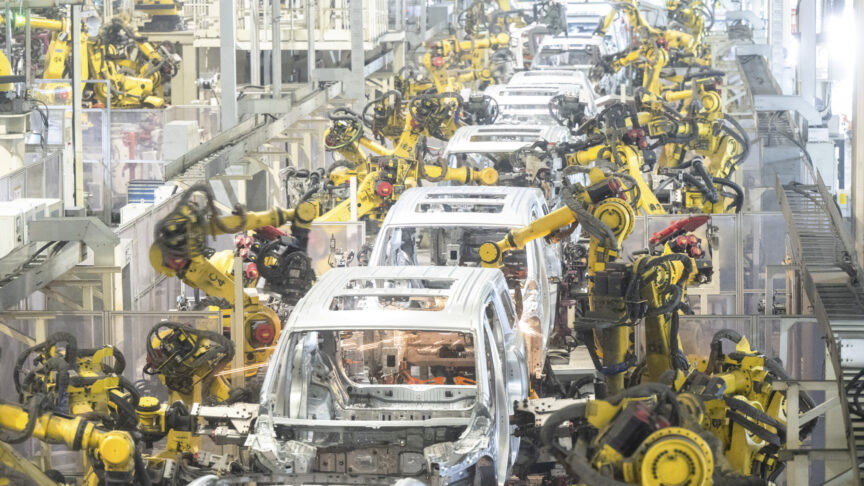Will and intent: The Paris ministerial forum on the Indo-Pacific
The recent Paris forum was the first step towards implementing the EU’s strategy for the Indo-Pacific. Given China and Russia’s alliance, Europe must ensure it continues to build up its influence in the region
On 22 February, the French presidency of the Council of the European Union and the EU’s foreign policy chief, Josep Borrell, co-organised the first-ever Ministerial Forum for Cooperation in the Indo-Pacific. Attendees at the event included foreign affairs representatives from all 27 member states and those from around 30 Indo-Pacific countries. As the event followed the September 2021 EU Strategy for Cooperation in the Indo-Pacific, China and the United States were not invited. Indeed, their presence would have cut against the raison d’être of this European strategy.
Neither the EU nor its Indo-Pacific partners want to be caught up in the zero-sum game resulting from the US-China rivalry. But the forum was also held to demonstrate to these partners Europe’s commitment to multilateralism – in contrast to the bilateralism that often characterises great power politics. This is especially the case for China, where the asymmetry of power inherent in its bilateral relationships guarantees that it always gets its way. The event thus provided a vehicle to advance the effective multilateralism to which both Europeans and Indo-Pacific countries aspire.
The forum also aimed to drive EU member states’ adoption of the 2021 cooperation strategy. Its mere existence is evidence of greater European awareness of ongoing shifts in the geostrategic and geo-economic centre of gravity. But the strategy was the result of a quid pro quo, meaning its words did not translate into the same priorities or commitments for all member states. Countries’ geostrategic perspectives vary according to their geography and respective strengths. Such differences are only normal. However, it was important at the forum to demonstrate unity to convince the Indo-Pacific states of Europe’s seriousness.
Ever since the release of the strategy, the French presidency has aimed to transform the EU’s increased commitment to the Indo-Pacific region into action. But this has proved to be easier said than done. Any initiatives had to be feasible and acceptable for both European and Indo-Pacific countries to launch the implementation process. Therefore, it took almost until the day of the forum for the organisers to identify a list of suitable projects.
The number and scope of the projects decided at the forum, then, mattered less than the fact of their existence. They covered initiatives in the fields of security, connectivity (mostly digital connectivity), climate change, and biodiversity. Some were significant: for example, the extension of a coordinated maritime project in the north-western Indian Ocean, which aims to enhance the European naval presence in the region and facilitate information sharing. And others, such as the promotion of the EU’s Global Gateway strategy – which aims to mobilise €300 billion of investment for connectivity infrastructure projects across the world – reiterated and reinforced existing decisions. This process has been strengthened by the decision to open branches of the European Investment Bank in Nairobi, Jakarta, and Suva.
As well as being the beginning of a new phase, the forum was the outcome of months of patient efforts to raise awareness about EU policy on the Indo-Pacific. The union has come a long way since France, Germany, and the Netherlands joined forces in 2021 to push for an EU Indo-Pacific strategy (which was taboo in some quarters): they have transformed the idea into a coherent strategy in less than a year. As mentioned above, the strategy is now entering the implementation phase. Economic interests are at the core of the EU vision for the region. The main objective, however, will be to assert the EU’s presence in the Indo-Pacific, gradually developing European political influence in a region that demands alternatives to a strict choice between the US and China.
From Ukraine to the East China Sea and beyond, the pillars of the international order are being threatened by the China-Russia partnership
While the outcomes of the Paris forum are an important step in the right direction, they are unlikely to significantly shift the balance of power in the Indo-Pacific. Nor can one take the sustainability of the process for granted. The EU strategy is a work in progress and will be so for some time. But there are undeniable signs of a new dynamic. In September 2021, the Czech Republic – not the most obvious candidate for an Indo-Pacific role – appointed a special envoy for the Indo-Pacific. And it has already made public its interest in pursuing an Indo-Pacific agenda when it takes up the presidency of the Council of the European Union after France.
That the forum took place just as a major international crisis was unfolding in Ukraine speaks volumes about the determination of EU member states and their partners to achieve their Indo-Pacific objectives. The risk now is that Europeans may divert all their attention towards Russia’s invasion of Ukraine. But Chinese support for the actions of Russian President Vladimir Putin demonstrates that this war is no longer just a European crisis.
From Ukraine to the East China Sea and beyond, the pillars of the international order are being threatened by the China-Russia partnership. In more practical terms, a European debate over resource allocation and burden sharing between the theatres of operations should begin soon. This constitutes both a risk and an opportunity for the EU and its Indo-Pacific ambitions. While the war in Ukraine might draw the EU’s energy away from the Indo-Pacific, it could also provide it with an opportunity to operate below the radar in the region. But both Ukraine and the Indo-Pacific will remain part and parcel of the same problem. As ECFR’s Janka Oertel recently put it: “China is rewriting global rules and Russia is playing along”.
The European Council on Foreign Relations does not take collective positions. ECFR publications only represent the views of their individual authors.



